We live in an era where safety isn’t a given, where there are evils in our world that have designs on attacking us, and where simple things like food and clean water depend on a complicated linked chain of events that could fall apart if even one link in the chain is disrupted.
And we won’t always have advanced notice or we’ll have the same notice as everyone else and there will be a mad dash to the grocery stores and pharmacies, with a good chance that what you need will be something the stores are all out of.
After the disaster, trauma will account for 70-80% in the acute phase. After that, during the next phase in the second part of survival, the proportion will probably reverse, 70-80% of chronic diseases will gain importance, and 20% will be trauma-related. How many of these trauma could you handle by yourself if there is no doctor around?
That’s the reason you need to learn at least five medical techniques, which are clearly described in the following article.
1. How to Stop Bleeding
You need to know the difference between venous and arterial bleeding.
- Arterial bleeding has red, purple blood, it’s a strikingly clear blood, because it oxygenated, and the oxygen content lightens the color, usually it gushes or pulses from the arteries as high as 6 to 9 feet. That’s because it’s being pumped by the heart.
- Venous bleeding has a black, dark blood because it contains carbon dioxide.
The bleeding may be large, medium or small, but in the vast majority of cases, (in 80% of them) the bleeding stops through compression. You must have patience and time. Press down on it for 3 to 5 minutes and it will stop eventually. Blood in contact with air and in contact with interrupted tissue normally coagulates naturally.
If blood doesn’t coagulate, that means the patient is suffering from liver problems and you can’t expect that bleeding to stop, it will continue forever or until the patient bleeds out. If you suffer from liver problems, if you have clotting problems, or if you’re a patient on anticoagulation medication, you should wear some sort of medical ID that will let first responders know that; it could mean the difference between living and dying.
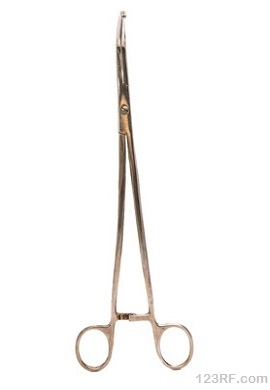
Double-tie or even triple-tie the knot so that there’s less chance of it coming loose. You’ll need scissors with which to cut above the knot, but not too high up.
There is one thing to keep in mind when you tie a knot, when pulling thread to the left and to the right, the thread must form a straight line, with the vessel exactly in the middle, it mustn’t form a triangle or a crooked line.
Practice these things in advance, on a leg of pork for example.
The surgical clamp is necessary because it makes it possible to grab the tissue and move it aside, because you always have to see everything. You need bandages, because the flowing blood obliterates your field of vision. When you can’t see where the blood comes from you move the tissue with the bandage to help absorb the blood so that you can see. Once you can see where it comes from, that’s where you attach the clamp.
For those who are not clearly informed and can’t do this, the simplest thing is to place bandages on the area and apply pressure for 5 minutes. During this time, don’t release the pressure even a little bit, even to see if it’s still bleeding. Hold down for 5 minutes and if it hasn’t stopped by then, apply pressure another 5 minutes, and it usually stops.
You can also apply a pressure bandage. Tie it tight, but not so tightly that blood can no longer flow from that point down, and it should stop. Once you get the bleeding under control, the wound – no matter how large it is – can be treated.
2. How to Tell if a Wound is New or Old
You need to differentiate between a new and an old wound. In the first 8 hours, the wound is new and you have many treatment options. Everything over 8 hours is considered old. Old wounds are no longer stitched and are no longer closed, no matter how big they are. The body heals without the stitches or closing, but it takes more time, perhaps even months. Still, they will close, with the only condition that they remain clean.
Why don’t you close an old wound? Because it’s considered contaminated. Enough time has passed for many bad bacteria to enter the wound from the outside environment. Some of these include Golden Staphylococcus, Streptococcus, and MRSA, (which stands for Methicillin-resistant Staphylococcus aurous really bad strain of Golden Staphylococcus that developed a resistance against antibiotics).
You can get these from the hospital and from environments that you usually come in contact with, especially through fecal-oral or fecal contamination, namely from your own stool. Germs are everywhere so the takeaway lesson here is that if you get a wound, get it treated immediately in order to have the best treatment options and prognosis.
3. How to Clean an Injury?
Burns are cleansed with a commercial wound cleaner that comes in a spray bottle and should be in your stockpile. The idea is to get off any debris or ash from the burn and to prepare it for covering with bacitracin and gauze.
Lacerations, abrasions, and puncture wounds can be cleaned with commercial wound cleanser. In the absence of that, use betadine swabs to gently clean the wound, getting off debris.
If you have none of the above, just use a mild soap and water, wiping the wound with gauze to clean off any debris. Then rinse with clean water so you can suture the wound or cover it, depending on its nature.
4. How to Suture the Skin?
Suturing the skin can be tricky because it involves a curved suture. Technically, in a bind, you could suture someone with a sewing needle and sewing thread but they aren’t sterile and you can’t be sure it won’t get infected. Sterile curved needles work the best.
Use the lidocaine and fill the syringe to about 3 cc or more if necessary. Inject the lidocaine all around the wound, entering the tissue beneath the skin as you inject. This hurts less than injecting the lidocaine by puncturing the skin. Save the excess in case you missed a spot. Be generous with your lidocaine.
Take the suture holder in hand. It looks like a scissors but has a pointed device for clamping the needle in its jaws.
Hold the handle in your hand like a scissors but don’t put your fingers in the holes. Clamp the curved needle in the holder about halfway along the curve.
Use the curve to your advantage as you connect one side of the wound to the other. When you’ve made one stitch, tie it in a knot, sparing as much suture as possible. Then cut the suture so the sutured knot is about an eighth of an inch long above the knot. Continue every quarter inch or so, making individual knots until the wound edges are approximated. Do your best when it comes to flap lacerations, curved or jagged cuts. There is only so much you can do.
- Using a stapler: You can purchase a surgical stapler on the internet. It comes as a device that you staple much like a real stapler. You must first sterilize the wound with betadine and you should have a staple remover, which is a small device that allows for rapid removal of the staple after it has been in the skin for around ten days. For the field, a stapler can be faster than using sutures and the cosmetic result isn’t bad, either.
- Using Steri strips: Instead of having to stitch the wound, you can place Steri strips on the edge of the wound. On one of the edges, it sticks by itself, and you push the other edge of the wound until the edges adapt to each other, and then pull the Steri strip over to the other side and attach it. Steri strips are as good as stitches, they last for 5 days, you don’t have to replace them, (just change the dressing on top) and they stay in place.
You can place Steri strips half a centimeter apart or you can lay them side by side. The scar looks nice and you don’t have any stitch holes to scar. You can stock up on as many steri strips as you want because they’re not expensive (less than $2) and you can clean on top of them afterwards.
Video first seen on Pass PA School
5. How to Keep a Wound Clean
- Don’t ever use a wet dressing, because bad bacteria love having a hot and humid environment and nourishment. If the bacteria have these 3 things, they multiply like hell and then infect the wound. That’s why you stop the bleeding, because blood is their development medium; it has all the goodies that bacteria need to feed on.
- Don’t apply a wet dressing and don’t leave a dressing on for days or weeks. Don’t keep the dressing on long enough for enough nutrients to accumulate for the bacteria, because in a wound you don’t just get blood, you also get lymph and secretions. That’s why you have to change the dressing.
- Do not cover it with a bag, with plastic or with whatever you find. You think that you protect it so that nothing can enter, that you seal it. False! It must be as aerated as possible. You must bandage it so that you prevent any loose debris from entering, so you don’t bruise it, so that it doesn’t leak a lot and so it doesn’t get dirty, but you need air without the 3 conditions that bacteria need to multiply.
The biggest danger of a wound is to reach the necrotizing fasciitis phase (fascial necrosis). Bacteria that is commonly anaerobic (it doesn’t need oxygen to feed) enters and finds a patient who has a poor immune system. This could happen for several reasons: liver issues, obesity, diabetes AIDS, alcoholism, or maybe the patient is old and no longer has as much immunoglobulin.
Bacteria find a perfect environment to develop and in a few hours they eat almost everything above the muscle and beneath the skin. It turns everything into necrosis, so it’s dead tissue. The bacterium works so fast that you can’t stop them. You need a doctor. How can you recognize this? You get those general symptoms of malaise, listlessness, fever. It doesn’t hurt, but you can touch and it feels like snow or crepitation. It is the most dreaded infection, but it doesn’t happen to everyone.
You’re also partly to blame because you have no immune system, because you didn’t go to the doctor to take care of yourself and see what other problems you have. Also, if you overeat, drink too much, or otherwise treat your body poorly, you’re setting yourself up for infection if you get hurt.
In conclusion, keep the wound clean. You don’t have to build a German Panzer on top of it; you don’t need a tank of a dressing. Keep it aerated and clean, and as long as it’s clean, it heals on its own. Look at the wound the next day and check to see if it’s okay before you wash it and remove all the dead or black tissue. It shouldn’t hurt, nor bleed. If it bleeds and it hurts that means it’s alive, so you don’t have to cut it off.
These are some of the basic medical techniques that you need to survive a medical emergency. Click on the banner below to find our how you could get more of this knowledge straight from the source.
This article has been written by dr.Radu Scurtu for Survivopedia.
DISCLAIMER: The data contained in this article are for informational purposes only, and do not replace by any means professional advice.


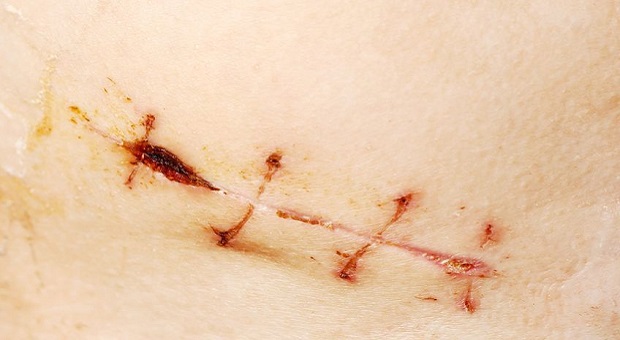
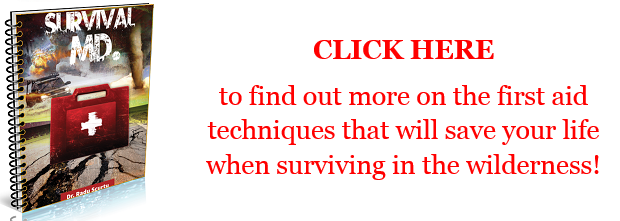
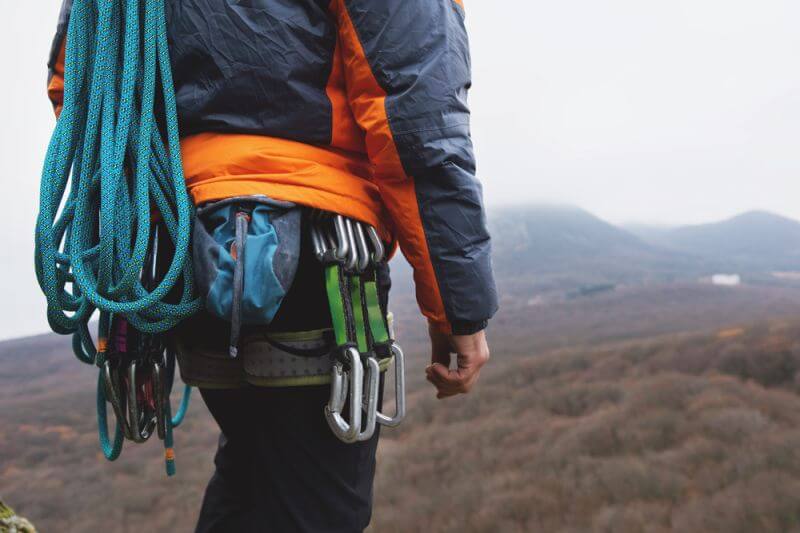

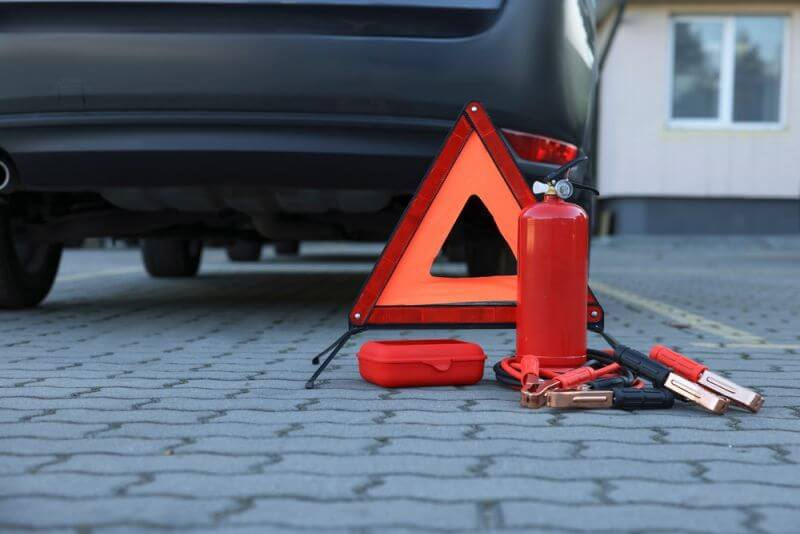
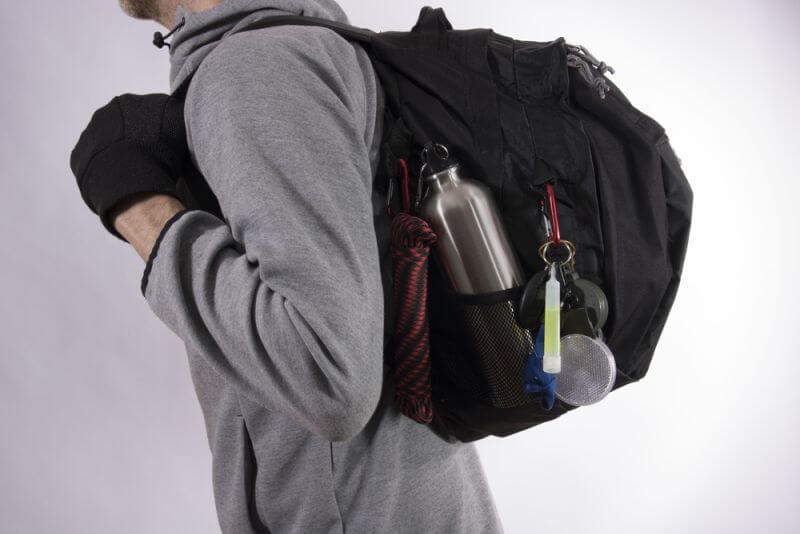

Pingback:Caring For The Wounded: 5 Techniques You Must Know! | Prepper's Survival Homestead | January 21, 2016
|
Thomas G. gutheil, md | January 21, 2016
|
Your description of arterial and venous blood is reversed. You have the color correct but it is arterial blood that spurts, venous blood oozes.
Survivopedia | January 21, 2016
|
We missed it, but we fixed it. Thank you for noticing!
Paul | January 21, 2016
|
Whatever change you made, now the colors are wrong. Arterial blood is bright red and oxygenated, venous blood is darker and not oxygenated.
Ted | January 21, 2016
|
I think there is a misprint in section one – Arterial blood gushes, venal blood does not. At least that is what I was taught. Please correct me if I am wrong
Survivopedia | January 21, 2016
|
Thank you for noticing the error! We fixed it.
John | January 21, 2016
|
Super glue will work in place of stitches.
Dave Maxwell | January 21, 2016
|
Some things you might add.
In a survival situation, you may not have the things that you have talked about.
Look for cobwebs or spider nets as a form of bandage. Penicillin comes from mouldy bread. Think poultice. Mouldy cheese is good too.
The military is taught that boiled honey poured on a wound while it is quite hot works well to prevent infection. A strong solution of sugar and water also works, if the honey is not available; think rock candy. They are also taught that urinating on yourself eliminates foot and other funguses. In Vietnam, quite a long time ago, Super Glue was used to close wounds.
If you have an infection, apply maggots as they will eat all of the infected flesh leaving the healthy flesh alone.
Does anyone wonder how all of those Pioneers made it across the Western US in Conestoga Wagons? They went from water hole to water hole or stream or river and did not die of dysentery. Were they just hardier than we are? Or did they have an instruction that saved their collective asses? The answer is, of course, they were all told to put a silver dollar in each of their water barrels. What the hell, that was in the 1850s to 1880s, long before electrolysis and colloidal silver; how did this work?
The oxygen in the water is attracted to the silver to make silver-oxide (Tarnish), but because it is in water, the silver oxide is suspended in the water. So…If you want easy to make, free, potable water, just put a silver coin or cross or ring or necklace into a water container 12 hours before drinking.
Army Rangers are given a canteen that is silver plated on the inside. Their instructions for use was to take any water source, put it in the canteen, shake the water, put the canteen in the sun for 30 minutes, shake it again, and then the water was safe to drink. That included safety from bacteria and parasites.
This silver solution is wonderful sprayed on for topical infections and taken internally to address any bacterial or viral infection including antibiotic resistant strains like MRSA and Flesh Eating Bacteria.
In ancient times, silver coins were filed into wounds of important people; the silver filings were thought to prevent infection.
Please share.
poorman | January 24, 2016
|
I am told the term Blue Bloods refers to the fact that the rich ate with silver cutlery and this caused them to ingest small amounts of silver which kept them healthy.
MICHELLE MOWERY | January 21, 2016
|
KEEP IT SIMPLE STUPID IS ALWAYS THE SAFEST WAY TO GO. IF YOU DO NOT KNOW WHAT YOU ARE DOING CLEAN THE WOUND WITH SOAP AND WATER AND RINSE WELL. CLEANSE WITH PEROXIDE TO KILL GERMS. BETADINE SWABS ARE GREAT FOR CLEANING THE INJURY. SURGICAL STRIPS ARE WONDERFUL AND SIMPLE TO USE AND ARE VERY EFFICIENT. GET THEM NOW IF YOU DON’T HAVE THESE ITEMS. BETTER TO BE SAFE THAN SORRY.DO NOT ATTEMPT SURGICAL PROCEDURES IF YOU DO NOT KNOW HOW TO DO IT..GET TO A DOCTOR ASAP IN ALL CASES IF THE INJURY IS SEVERE. DON’T TAKE ANY CHANCES.
Dr bailey | January 21, 2016
|
In my practice is treat wounds every day. The key to healing is a low carb diet and regular debridement (cutting off the dead stuff)
Pingback:Caring For The Wounded: 5 Techniques You Must Know! | NewZSentinel | January 21, 2016
|
samnjoeysgrama | January 21, 2016
|
You mention washing the wound. I assume you are using boiled water. In a SHTF situation, your water supply may not make you sick when you drink it, but could still carry some nasty little bacteria that your stomach acid handles, but that would thrive in a wound.
I remember when I was a kid (65 years ago) a wound dressing was often removed so the wound could “breath” for a few hours each day. Usually that would be right before the fresh dressing was applied. Was that a good idea? Or would the environment have a lot to do with what kind of airborne bacteria might be floating around?
samnjoeysgrama | January 21, 2016
|
BTW, thank you. Great article.
Paul | January 21, 2016
|
You should never wipe a burn. You pat a burn.
Paul M | January 21, 2016
|
I keep cayenne pepper powder handy and put on cuts and bruises. The heat from the pepper draws more white blood cells to the area so that healing occurs faster. After a day or two, I then put cold pressed caster oil on the wound. The caster oil goes into the skin to the underlying area where new cells are formed, so that good new cells will form instead of scar tissue. The cayenne methods were used by Native Americans.
Sharon Devin | January 26, 2016
|
Cayenne pepper also stops bleeding. I had an incident where a girl at my house cut her hand badly on a glass she was holding as she collapsed from the heat. My son applied pressure to her wrist to stop bleeding while I dumped a bunch of cayenne pepper into cold water and we put her hand in the water keeping the pressure up. After awhile we pulled her hand out of the water and removed the pressure. Her hand did not bleed anymore all the way to the Hospital ER until the doctor examined the wound and opened it up. They had to call a surgeon to close the wound. We keep cayenne in the car now and on camping trips!
Pingback:Caring For The Wounded: 5 Techniques You Must Know! | Bsn Global News | January 21, 2016
|
Pingback:Survival News 01/21/16 | Survival Pulse | Daily Survival & Prepper News | January 22, 2016
|
Pingback:Caring For The Wounded: 5 Techniques You Must Know! | TheSurvivalPlaceBlog | January 22, 2016
|
Walt | January 23, 2016
|
This article doesn’t read like it was written by a surgeon. I’d have been willing to give him the benefit of the doubt since English probably isn’t his native language, if it wasn’t for his completely ignoring delayed primary closure and that wet-to-dry dressings should never be used.
Charlie | January 23, 2016
|
Very good article I have a slight advantage over the public at large. I am a retired paramedic/firefighter so medical supplies are one of my biggest preps. I stock more than my family will hopefully ever need. There are several reasons for this they can be bartered, used for others in our group, and one of the most important is having medical knowledge can go a long way twords keeping you and your family safe from others in a shtf situation ” don’t bite the hand that feeds you”. Other than my b o b I always Carry a fully stocked medical jump kit in whatever vehicle I’m in. The biggest expense I have found is keeping I V supplies stocked and in date. I am fortunate that I have some friends still working in the field so I can usually trade my supplies that are nearing expiration for new ones.
The most important things to remember in trauma is if it’s bleeding make it stop, and keep it clean. If it’s crooked and it shouldn’t be straighten it and keep it straight. If it’s moving and it shouldn’t stop it and don’t let it move again. One saying I have is air goes in and out blood goes round and round any deviation from this is a very bad thing and must be fixed. A couple of things I would change about the article is that arterial bleeding spurts not venous, venous bleeding oozes.
Pingback:Caring For The Wounded: 5 Techniques You Must Know! – The Prepper Dome | February 3, 2016
|
Pingback:Why Every Prepper Needs To Know About Oxygen Concentrators | Survivopedia | February 24, 2016
|
Pingback:Why Preppers Need To Know About Oxygen Concentrators | Prepper's Survival Homestead | February 24, 2016
|
Pingback:Why Preppers Need To Know About Oxygen Concentrators | NewZSentinel | February 24, 2016
|
Pingback:Why Preppers Need To Know About Oxygen Concentrators | Family Survival Headlines | February 24, 2016
|
Pingback:Why Preppers Need To Know About Oxygen Concentrators | | disasterdefense.us | February 25, 2016
|
Pingback:10 Trees A Prepper Needs For Food And Health | | Disasterdefense.us | March 14, 2016
|
Pingback:Why Preppers Need To Know About Oxygen Concentrators – Prepper Dome | July 17, 2016
|
Pingback:9 Ways To Disinfect Wounds In A Survival Situation | Survivopedia | March 24, 2017
|